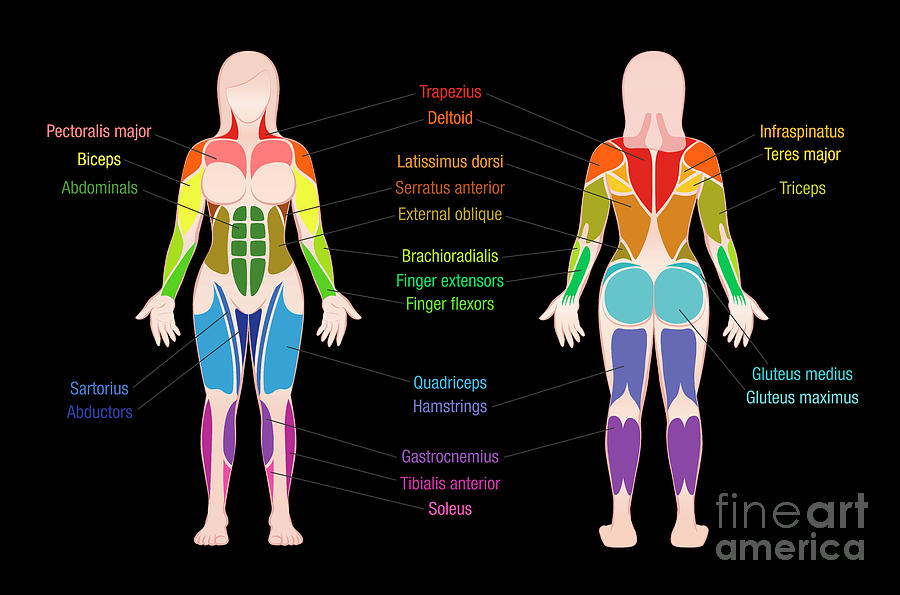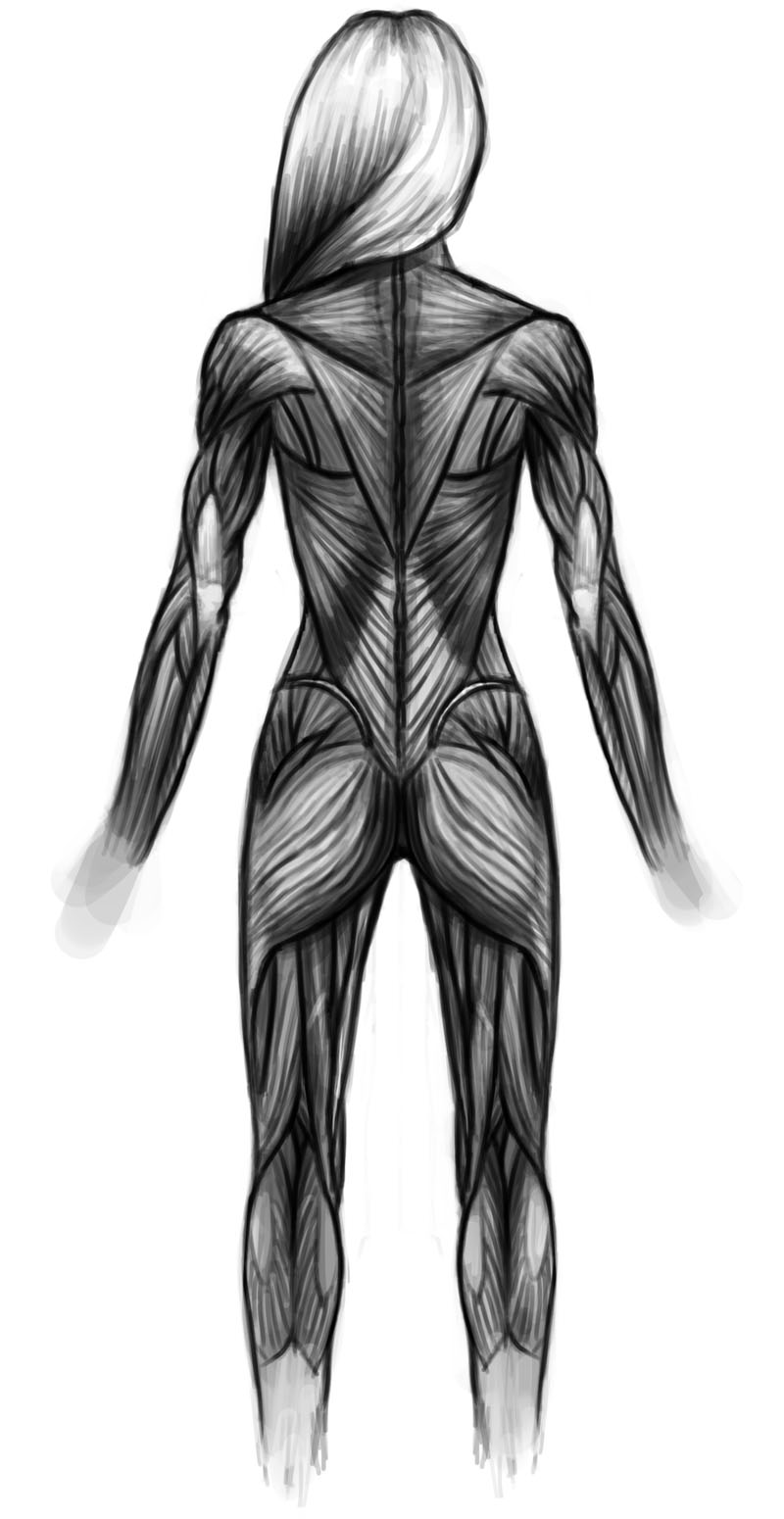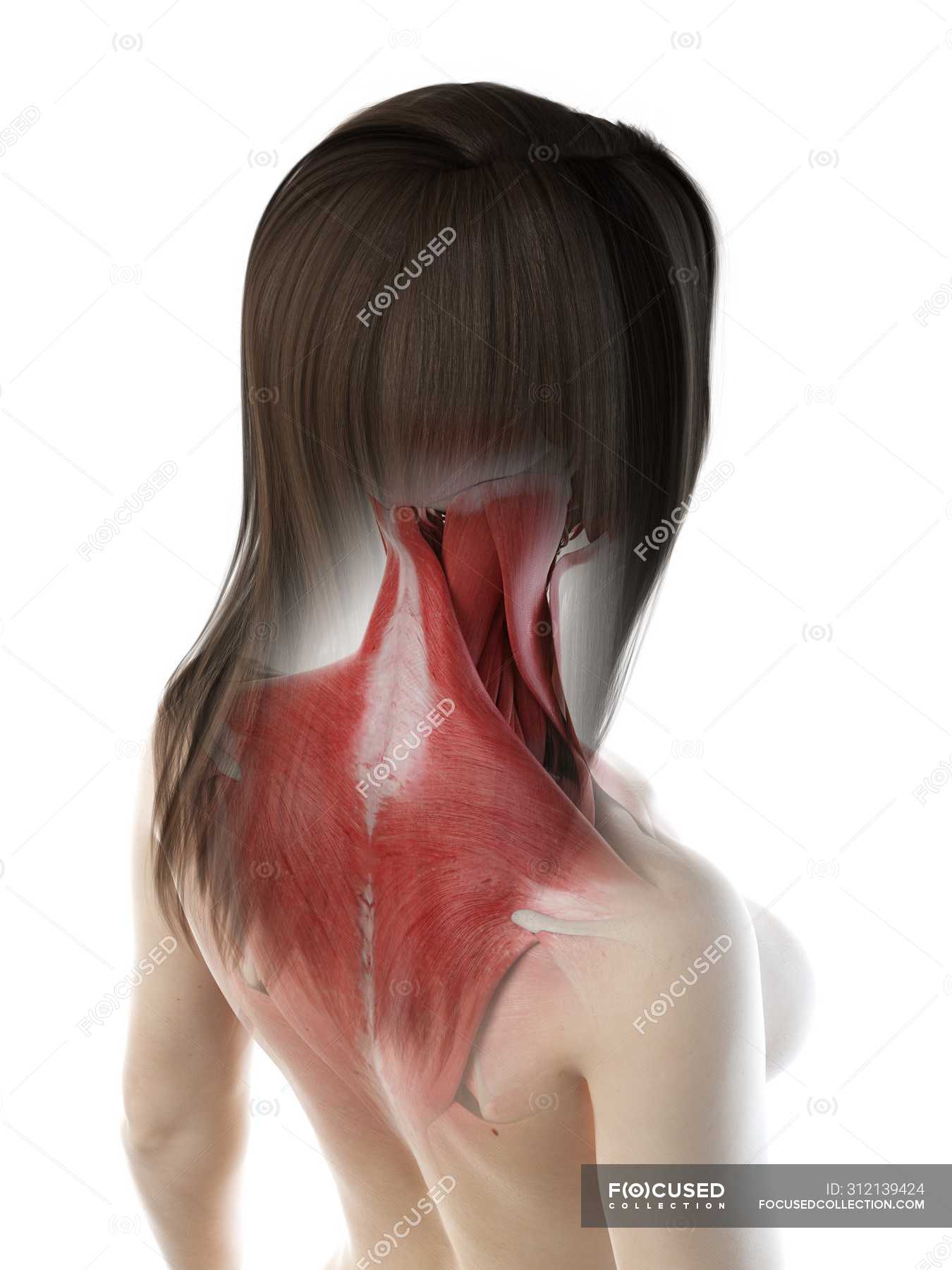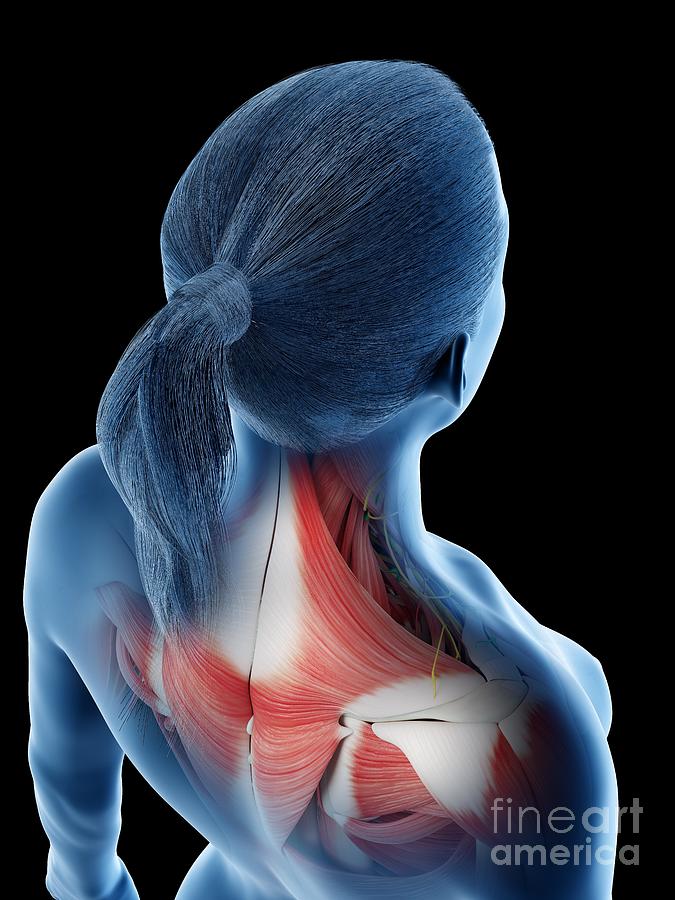
Upper Back Anatomy Organs Female Back Muscle Anatomy (With images) Muscle anatomy
Your back consists of a complex array of bones, discs, nerves, joints, and muscles. The muscles of your back support your spine, attach your pelvis and shoulders to your trunk, and provide mobility and stability to your trunk and spine. The anatomy of your back muscles can be complex. There are several different layers of muscles in your back.

Muscles of the Lumbar Spine of the Trunk
Female anatomy includes the internal and external reproductive organs. This article provides diagrams with supporting information to help you learn about the main structures and functions.. The rest of the clitoris is a spongy shaft that goes back several inches inside the body. Urethral opening: The urethra is the tube that carries urine.

Female Back Muscles Chart Muscles Chart Description Muscular Body Woman Stock Vector
The muscles of the back can be arranged into 3 categories based on their location: superficial back muscles, intermediate back muscles and intrinsic back muscles.The intrinsic muscles are named as such because their embryological development begins in the back, oppose to the superficial and intermediate back muscles which develop elsewhere and are therefore classed as extrinsic muscles.

Pin on Massage
The trapezius is a large triangular muscle that covers the posterior aspect of the neck and the superior half of the back. There are two trapezius muscles in the back, which when seen together, look like a trapezium. Proximally, the trapezius originates on the medial third of the superior nuchal line, the external occipital protuberance, the.
:background_color(FFFFFF):format(jpeg)/images/library/12060/Img.jpg)
Anatomy of the back Spine and back muscles Kenhub
Female anatomy includes the external genitals, or the vulva, and the internal reproductive organs. This article looks at female body parts and their functions, and it provides an interactive diagram.

female back muscles by martydesign on DeviantArt
Latissimus dorsi (lats), the largest muscle in the upper part of your body. It starts below your shoulder blades and extends to your spine in the lower part of your back. Levator scapulae, a smaller muscle that starts at the side of your neck and extends to the scapula (shoulder blade). Rhomboids, two muscles that connect the scapula to the spine.

Female Spine Stock Image C001/5016 Science Photo Library
The back is the body region between the neck and the gluteal regions. It comprises the vertebral column (spine) and two compartments of back muscles; extrinsic and intrinsic. The back functions are many, such as to house and protect the spinal cord, hold the body and head upright, and adjust the movements of the upper and lower limbs.

Bones Of Female Back Pubis Anatomy Function And Treatment dicasdeferi
Anatomy Of The Female Back: Understanding the Structure and Function. The female back is a complex and intricate part of the body that plays a crucial role in supporting the spine, protecting vital organs, and facilitating movement. In this blog post, we will explore the anatomy of the female back, including its structure, function, and common.

silver chain woman muscle back fitness chains bodybuilder 5K wallpaper hdwallpaper
Browse Getty Images' premium collection of high-quality, authentic Human Anatomy Organs Back View stock photos, royalty-free images, and pictures.. female back anatomy, illustration - human anatomy organs back view stock illustrations. man jogging on grass in park, perth, western australia, australia - human anatomy organs back view stock.

Fitness All Guides A2Z Facts
You should end the movement standing upright with chest open, shoulders back, and gaze straight ahead. Slowly exhale as you reverse the movement to lower the bar to the floor in a straight line. Keep the bar close to your body, but avoid snaking it around your knees. 2. Isolate.

Back Muscles Anatomy Female Muscles Of The Back Teachmeanatomy / Note also two bones note also
Summary. The back consists of the spine, spinal cord, muscles, ligaments, and nerves. These structures work together to support the body, enable a range of movements, and send messages from the.

What is Biodynamic Craniosacral Therapy Michelle Driscoll Craniosacral and massage therapy
The back is found posteriorly and includes the vertebral column, the muscles that support the back and the spinal cord. The vertebral column consists of 33 vertebrae which can be split up into 5 continuous sections. Each section is functionally different and is specialised for either weight-bearing, movement, protection and/or posture.

Female Back Muscle Anatomy Female torso muscles anatomy Male Anatomy Ref Pinterest Muscle
Back muscles. The muscles of the back are a group of strong, paired muscles that lie on the posterior aspect of the trunk. They provide movements of the spine, stability to the trunk, as well as the coordination between the movements of the limbs and trunk. The back muscles are divided into two large groups: The extrinsic (superficial) back muscles, which lie most superficially on the back.

Pin on Lower Back Pain
Browse 2,658 female back anatomy photos and images available, or start a new search to explore more photos and images. Browse Getty Images' premium collection of high-quality, authentic Female Back Anatomy stock photos, royalty-free images, and pictures. Female Back Anatomy stock photos are available in a variety of sizes and formats to fit.

Anatomy Back, Body Anatomy, Human Anatomy, Animation Reference, Anatomy Reference, Pose
Toggle Anatomy System. The bones of the pelvis and lower back work together to support the body's weight, anchor the abdominal and hip muscles, and protect the delicate vital organs of the vertebral and abdominopelvic cavities. The vertebral column of the lower back includes the five lumbar vertebrae, the sacrum, and the coccyx.

Female Back Anatomy Photograph by Sebastian Kaulitzki/science Photo Library Fine Art America
ISSN 2534-5079. This human anatomy module is composed of diagrams, illustrations and 3D views of the back, cervical, thoracic and lumbar spinal areas as well as the various vertebrae. It contains the osteology, arthrology and myology of the spine and back. It is particularly interesting for physiotherapists, osteopaths, rheumatologists.